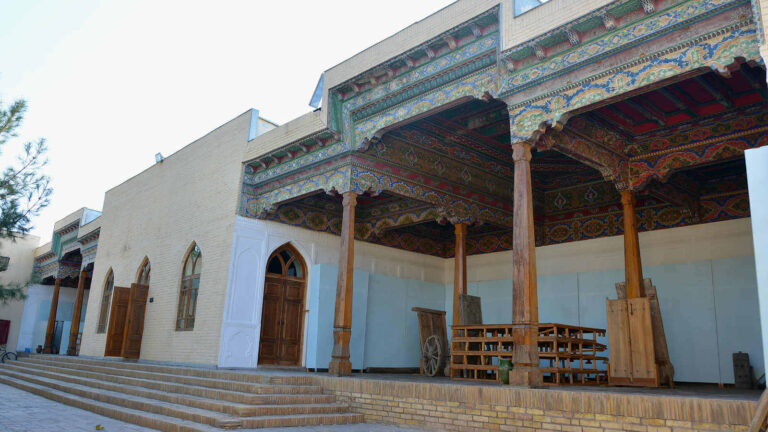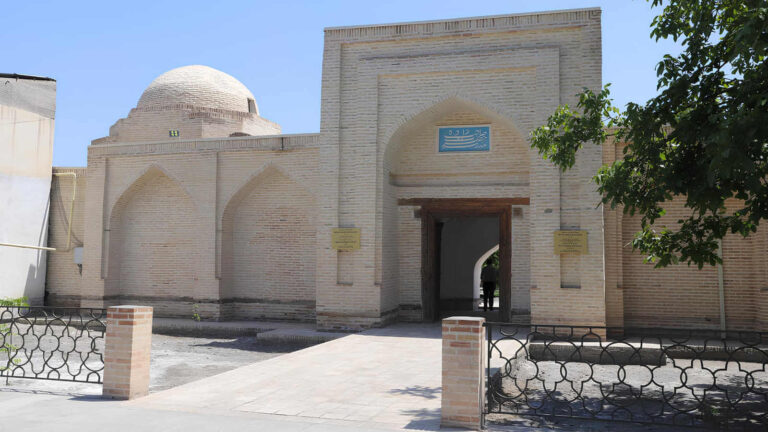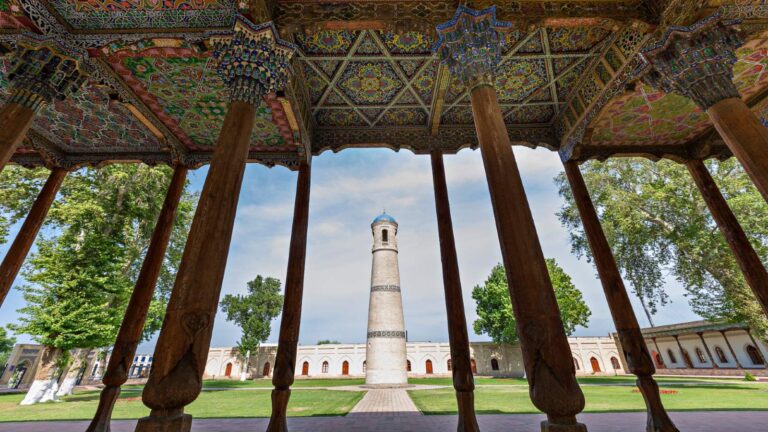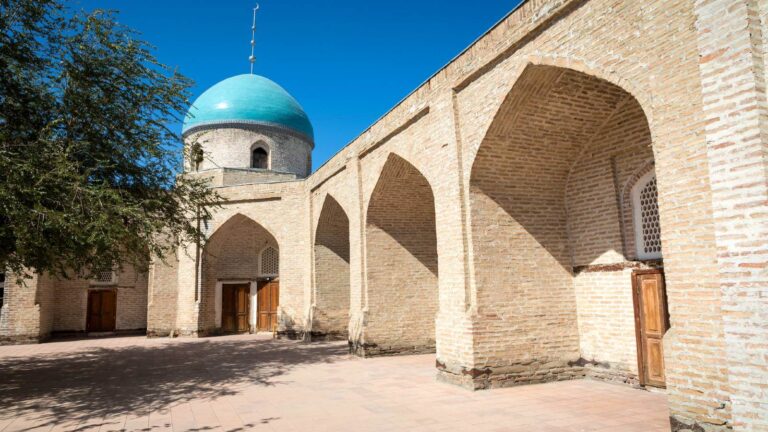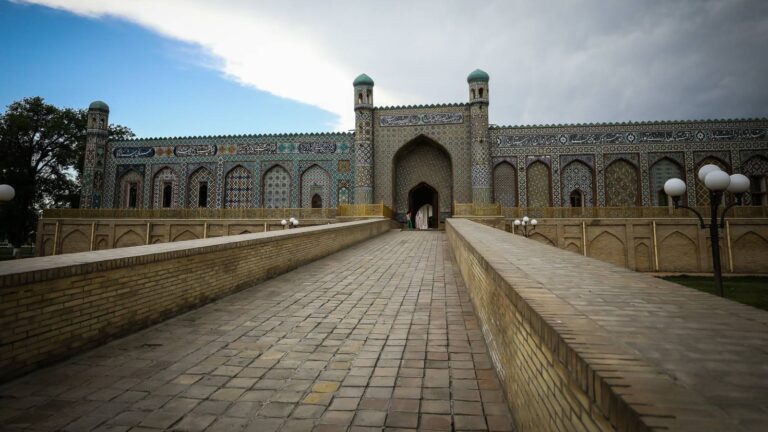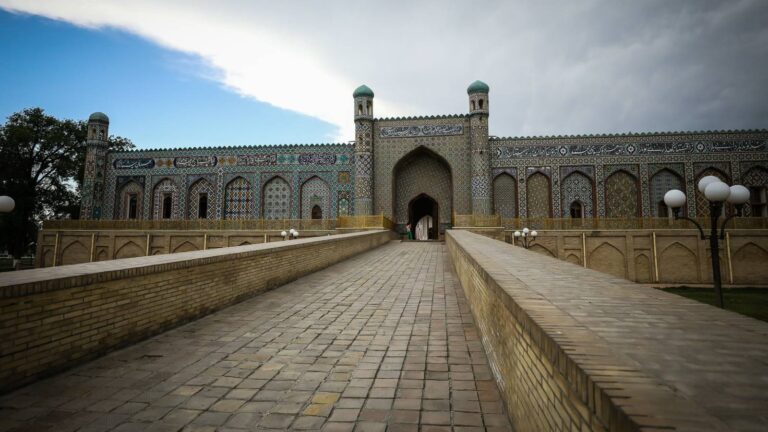Getting There
Dakhmai Shokhon Necropolis is located in the city of Kokand on Katta Kabriston Street.
It is convenient to get here by buses No. 14, 33, 66, 30.
One can get here by train from Tashkent South Station in Tashkent-Andijan-Tashkent direction. The flight is carried out every day 2 times.
It is also convenient to move around the city by taxi, using services of Taxi Premier, Arava, Real taxi, etc.
What to Expect
The word “dakhma” can be translated as necropolis or tomb. In 1822, the son of the Kokand khan Norbutabi – Umarkhan ordered to build a dakhma for his father, but he himself died suddenly at the moment when the well-known architects Usto Muhammad Kozi and Muhammad Nazzhar just laid the foundation. The completion of the construction was supervised by the wife of Umarkhan – Mohlaroyim, who wrote poetry under the pseudonym Nodira, and their son Madalikhon. The facility was built in 1824.
History
Chalpak madrasah was built near Dakhmai Shokhon necropolis by orders of Nadira. And around the memorial she laid out flower garden and planted an orchard. For almost the entire century, Dakhmai Shokhon, which means “necropolis of kings”, was the family tomb of the Kokand khans.
Facilities Available
The complex consists of a darvozakhona, a mosque and a tomb. The darvozakhona entrance portal is the most beautiful part of the ensemble, decorated with a unique Fergana ornament in the form of a stylized image of pepper.
Above the gate majolica script is written in Arabic: “Aspirations lead to respect, envy – to poverty. Each baseness leads to another baseness. ” Inside the darvozakhona, there is a place for reading prayers (korikhona). Its walls and dome are decorated with ganch carvings. There are 2 doors from the korikhona – one leads to a staircase going to the dome, and the other to the courtyard of the complex. There is a public toilet on the territory of the palace.

